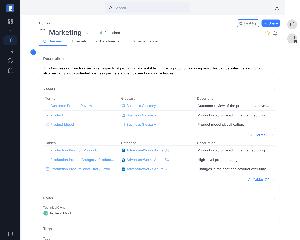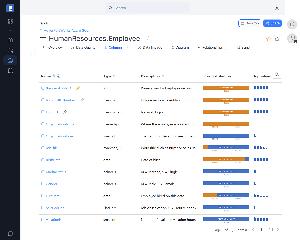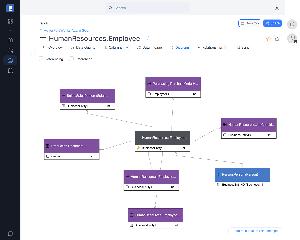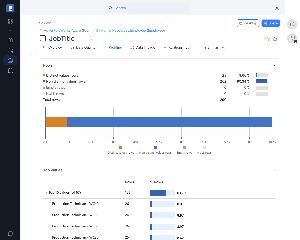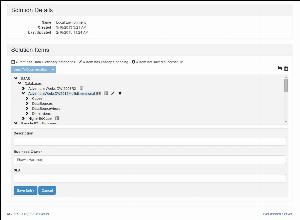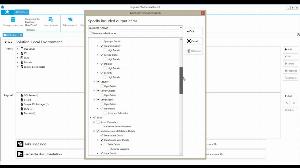Data dictionary tools for Microsoft SQL Server Reporting Services (SSRS)
List of tools that enable design and building of data dictionaries .
Data Dictionary is a set of important information about data used within an organization (metadata). This information includes names, definitions, and attributes about data, owners, and creators of assets. Data Dictionary tools provide insights into meaning and purposes of data elements. They add useful aliases about the scope and characteristics of data elements, as well as the rules for their usage and application.
Dataedo
With Dataedo, users can build a comprehensive data dictionary that documents tables, columns, data types, and relationships. This ensures consistency in data definitions, reduces ambiguity, and enhances data transparency across teams.
| Desktop/Cloud: | Desktop |
|---|---|
| ER Diagram: |
|
| Export: | HTML,MS Excel,PDF |
| Metadata stored in: | Documentation repository/file |
| Commercial: | Commercial |
| Free edition: |
|
| Notable features: | ER Diagrams, Data Profiling, Data Lineage, Data Quality, Schema Change Tracking, Sensitive Data Classification |
| Runs on: (for desktop): | Mac OS,Windows |
SolarWinds Database Mapper
SolarWinds Database Mapper (formerly SentryOne Document) offers complete documentation for SQL Server databases and BI tools, including SSIS, SSRS, SSAS, Oracle, Hive, Tableau, Informatica, and Excel. In addition, it allows object description editing and documentation can be customized for different audiences, so users only see the most relevant information for their role.
| Desktop/Cloud: | Desktop |
|---|---|
| ER Diagram: |
|
| Export: | CHM,HTML,MS Word,RTF |
| Metadata stored in: | Documentation repository/file |
| Commercial: | Commercial |
| Free edition: |
|
| Notable features: | Lineage Analysis and Impact Analysis, include images |
| Runs on: (for desktop): | Windows |
Alation Data Catalog
Alation data dictionary defines and describes technical data terms. Data terms could be database schemas, tables, or columns. Once connected to data sources, Alation automatically indexes data and populates catalog pages. For example, a column catalog page shows the technical column name, a business title name, the data type, and popularity. Additional context can be added to the data dictionary, for shared understanding across the organization.
| Desktop/Cloud: | Cloud |
|---|---|
| ER Diagram: |
|
| Export: | MS Excel |
| Metadata stored in: | - |
| Commercial: | Commercial |
| Free edition: |
|
| Notable features: | ML auto-suggested business glossary terms |
| Runs on: (for desktop): | - |
Key functionality of Data Dictionary tools is to give users the ability to document data. Moreover, very important is the possibility to create a collection of multiple repositories, based on different system engines. For a better understanding of the data, some tools allow visualization of the data structure using ERD (Entity-Relationship Diagrams).
From the organization's point of view, a community module within a data dictionary tool proves to be useful. It facilitates the proper information flow, as well as provides sharing opinions on specific objects among the members of an organization.
Nowadays, data discovery and understanding becomes crucial for proper organization performance. There are many benefits to using Data Dictionaries, such as:
• helps avoid data inconsistencies problems,
• it allows introducing unified nomenclature used in the project,
• Make data searchable, and understandable,
• Create a single source of truth about the data from different repositories,
The prepared list includes simple, open-source data dictionaries as well as more advanced software.
 SQL Server
SQL Server
 Oracle
Oracle
 MySQL
MySQL
 PostgreSQL
PostgreSQL
 Amazon Redshift
Amazon Redshift
 Azure SQL Database
Azure SQL Database
 DBT
DBT
 Google Big Query
Google Big Query
 IBM DB2
IBM DB2
 MariaDB
MariaDB
 SAP HANA
SAP HANA
 Snowflake
Snowflake
 SQLite
SQLite
 Teradata
Teradata
 Vertica
Vertica
